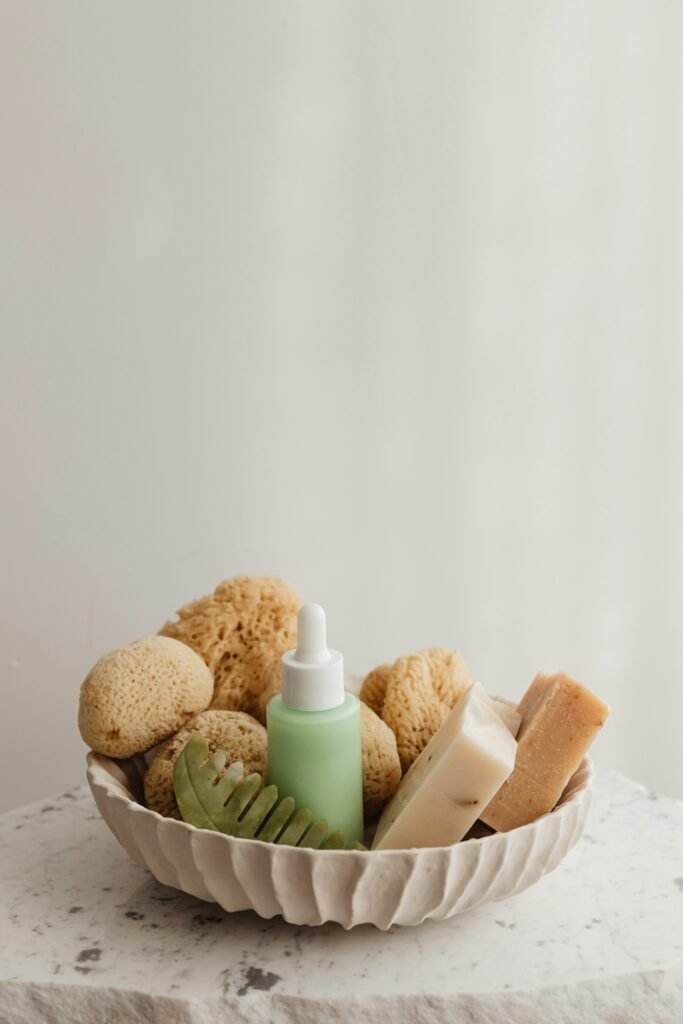Self-Care Isn’t Selfish—Here’s Why You Need It Today
Why Taking Care of Yourself Matters More Than You Think
Life moves fast. Between work, family, and the constant noise of notifications, it sometimes feels like the easiest thing to ignore is… yourself. I learned that the hard way one winter in New York. At the time, I was juggling three restaurant shifts, writing deadlines, and endless family obligations. I was running on fumes, giving everyone else my energy until there was nothing left for me.
The shift came one random Sunday. Instead of forcing myself to push through another round of work, I slowed down. I brewed a pot of French press coffee, wrapped myself in my grandmother’s quilt, and curled up with an old book of M.F.K. Fisher essays. Three quiet hours later, I felt like a different person—refreshed, inspired, and finally full again.
That day taught me something I’ll never forget: self-care doesn’t mean pricey spa treatments or Instagram-perfect rituals. It’s about recognizing your basic needs—rest, nourishment, joy, connection—and meeting them with the same care you give everyone else. In kitchens, there’s a rule: sharpen your knife before every shift. Why? Because dull knives are dangerous. And the same is true for us—a worn-down version of ourselves just can’t show up fully.
The more I practiced self-care, the more I noticed how it changed everything—not just how I felt, but how I created, connected, and lived. Suddenly, even the marinara sauce I’d made a thousand times tasted richer, brighter, more alive. The mundane became exciting again.
That’s why today, I want to share not only why self-care matters, but also real, practical ways to bring it into your daily life. Because if there’s one lesson I’ve learned from years of working under pressure, it’s this: self-care isn’t selfish—it’s essential.

The Truth About Self-Care
Let’s be honest: the word “self-care” has been hijacked by marketing. Too often it’s sold to us as something you buy—candles, creams, retreats. But authentic self-care has nothing to do with purchases. It’s about how you relate to yourself, every day. Think of it as maintenance for your body, mind, and spirit.
Science backs this up. Studies show regular self-care lowers stress hormones like cortisol and boosts chemicals like serotonin and dopamine that help you feel calm and motivated. This isn’t indulgence—it’s biology. Your brain and body literally work better when you care for them.
The mistake most people make? Waiting until burnout hits. It’s like ignoring your car’s oil light until the engine fails. Real self-care is proactive, not reactive. When you rest before exhaustion, you’re more productive afterward. When you give yourself downtime, you actually get sharper, more creative, and better at solving problems.
How It Changes Everything
Once I started treating self-care as a priority instead of a luxury, I noticed changes almost immediately. The knots in my shoulders softened. My constant background anxiety quieted down. And, maybe most surprising, my relationships felt deeper and more real.
Self-care creates space for authenticity. When you’re not surviving on adrenaline and caffeine, you can show up as your full self—patient with your kids, present with your partner, and kinder to yourself.
And it spreads. People notice. In the kitchen, I saw colleagues who once wore exhaustion like a badge of honor start to rethink their habits when they saw how my work improved after I began setting boundaries. When you model self-care, you’re also giving others permission to take better care of themselves.
Here’s the irony: far from “taking up time,” self-care often creates more of it. Twenty minutes of meditation or a proper lunch break can give back hours of clarity and energy that you’d otherwise waste battling fatigue.
What Real Self-Care Looks Like
- 5–15 minutes daily for journaling, meditation, or breathing
- 7–8 hours of good sleep with a steady bedtime
- Food that fuels instead of drains you
- Movement you actually enjoy
- Clear boundaries with work and screens
- Friends and loved ones who lift you up
- Hobbies that bring real joy
- Permission to rest—without guilt
- Talking to yourself like you would a friend
- Some connection to nature, even five minutes outdoors
Making It Work Every Day
Start small. Forget the Pinterest-perfect routine and ask: what’s realistic for me right now? My first rule was just 10 minutes every morning with my coffee and journal before emails. That’s it.
Think of self-care like a balanced meal: small daily bites, weekly rituals, and occasional “feasts” like retreats or days off. Each layer matters.
Use your environment to help. Keep your journal by the coffee maker, shoes by the door, meditation cushion beside the bed. These little visual cues make it easier to stick to your intentions.
And remember, self-care shifts with your seasons. During busy stretches, it may look like three deep breaths between tasks. During lighter times, maybe an hour-long walk. The point is not perfection—it’s consistency.
Tips to Stay Consistent
- Start with five minutes instead of two hours. Build from there.
- Don’t compare your rituals to Instagram. If it recharges you, it counts.
- Celebrate micro-moments of self-care: breathing while the kettle boils, enjoying a song fully, or noticing the sun on your face.
- If seated meditation feels impossible, try walking, stretching, or even mindful cooking. Presence is what matters, not posture.
Healthier Ways to Upgrade
Experts suggest “habit stacking”: linking a self-care action to something you already do. Gratitude while your coffee brews. A body scan while brushing your teeth. A quick stretch while your laptop boots up.
And if you’re living with chronic illness or limited energy, remember: self-care doesn’t need to be physical. Gentle touch, calming breathwork, or even repeating kind words to yourself can be just as powerful.
Final Thoughts
At the end of the day, self-care isn’t about bubble baths or face masks (though they’re nice, too). It’s about how you treat yourself—every single day. When you care for yourself the way you care for others, life changes.
So, think of self-care not as a reward, but as a daily reset. A way of coming back to yourself. And the more you practice, the more you’ll notice the ripple effects in your energy, your relationships, and your creativity.
Because here’s the truth: self-care isn’t selfish—it’s survival.

Frequently Asked Questions For Self-Care
Q: Isn’t self-care just another form of selfishness?
A: Self-care is actually the opposite of selfishness. It’s ensuring you’re well-resourced enough to show up fully for others rather than giving from a place of depletion, which often leads to resentment and burnout.
Q: I don’t have time for self-care. What can I do?
A: Start with 5-minute practices integrated into existing routines. Even brief moments of mindfulness, proper hydration, or deep breathing can make a significant difference when practiced consistently.
Q: How do I know if my self-care is working?
A: Effective self-care creates greater resilience to stress, improved mood, better sleep quality, and more patience in challenging situations. You’ll notice you recover more quickly from setbacks.
Q: What if traditional self-care activities don’t appeal to me?
A: Self-care should be personalized. For some, it’s quiet solitude; for others, it’s social connection or creative expression. The question isn’t “Is this a recognized self-care activity?” but “Does this restore and replenish me?”
Q: How do I handle the guilt that comes up when I prioritize myself?
A: Recognize that guilt often stems from cultural conditioning rather than truth. Start with small steps and notice how your improved wellbeing positively impacts those around you.
Q: What’s the difference between self-care and self-indulgence?
A: Self-care strengthens you and creates greater wellbeing over time, while self-indulgence often provides momentary pleasure but may create problems later (like stress shopping creating financial strain).
Q: How do I create boundaries around self-care when others need me?
A: Communicate clearly about your needs, start small with non-negotiable practices, and remember that modeling self-care teaches others to respect their own needs too.
Q: Is meditation necessary for effective self-care?
A: While meditation offers well-documented benefits, it’s just one of many effective practices. Find what creates a sense of presence and restoration for you personally.
Q: How can I practice self-care at work?
A: Take actual lunch breaks, set up your workspace ergonomically, practice brief mindfulness between tasks, stay hydrated, and set digital boundaries like not checking email after certain hours.
Q: What if my self-care practice becomes another obligation that stresses me out?
A: This is a sign to simplify. Effective self-care should feel liberating, not burdensome. Scale back to basics and focus on what genuinely replenishes you.
Q: How do parents find time for self-care?
A: Integrate practices during existing routines, trade childcare with other parents, involve children in age-appropriate self-care activities, and remember that even brief moments accumulate meaningfully.
Q: Can self-care help with chronic health conditions?
A: Absolutely. While self-care doesn’t replace medical treatment, research shows that stress reduction practices can significantly improve symptom management and quality of life for those with chronic conditions.

